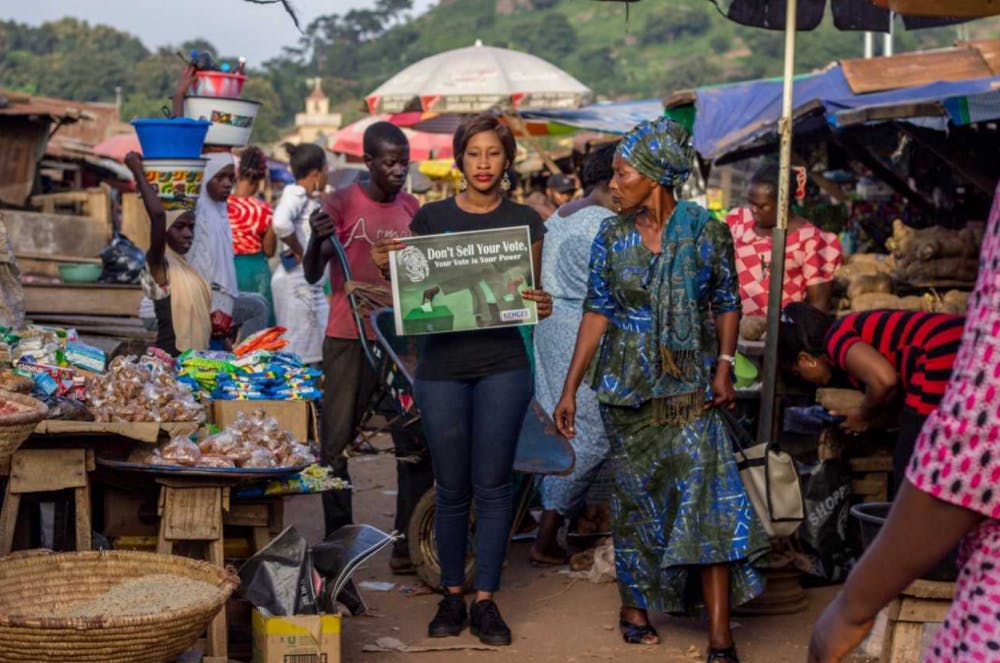The work of nine Nigerian photography students is being featured in the John and June Allcott Gallery. Titled “I Be Person I No Be Number,” the exhibition explores issues of democracy and human rights in Nigeria.
The exhibit is the result of a partnership between the UNC Department of Art and Art History and the Nlele Institute, which aims to educate and develop the skills of budding photographers in Nigeria and throughout Africa. Uche Okpa-Iroha, the director of the Nlele Institute, taught the students whose work is being shown.
The exhibition is also a result of a collaboration between the art department, the Click! Photography Festival and the For Freedoms initiative. Okpa-Iroha'sstudents were asked to respond to For Freedoms’ mission to use art to encourage public discussion of political issues and values.
UNC professors Gesche Würfel and Carol Magee organized the exhibition. Both have past experience working with African photographers.
Last year, Würfel created an exhibition with the Market Photo Workshop, a photography organization in South Africa. Magee, who was working with Okpa-Iroha on her own project at the time, brought him in to do a panel discussion on the exhibition.
This year, Würfel and Magee decided to create a show featuring Okpa-Iroha’s students.
Makiah Belk, a senior political science and English double major and studio art minor, helped organize the exhibition as part of an independent study.
“It was really cool that we got to bring something like this to UNC,” Belk said. “I feel like we don’t really hear about black conscious movement in other parts of the world and in places with budding democracies and budding economics. The political movements there are a little bit more on the ground, and so the fact that we get to tell their stories here and kind of give insight to what is happening both politically and culturally there — I feel like it was a unique opportunity.”
Würfel said it was purposeful that the exhibition coincides with the upcoming midterm elections in the United States. She said she hopes the exhibition both teaches people about the current situation in Nigeria and encourages them to participate in their democracy.




